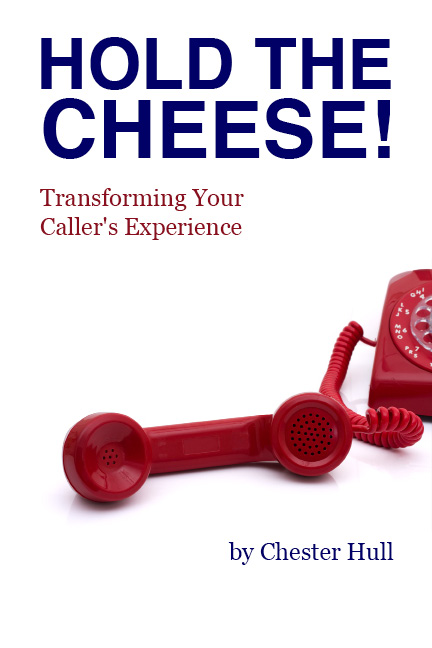 Have you ever wondered who thought of writing the Auto-Attendant you are listening to when you call a company?
Have you ever wondered who thought of writing the Auto-Attendant you are listening to when you call a company?
How many times have you been frustrated by the options?
How often have you thought “they sure weren’t thinking of me when they designed this thing?”
One of the things that has always puzzled me is the fact that there seems to be an unspoken rule that Auto-Attendant messages have to be frustrating! I mean, that’s the majority of experiences out there, right?
Well guess what…we’ve done the research, and there is no such rule. Not a one!
In fact, just the opposite. The same rules that apply to good writing, also apply to crafting a good Auto-Attendant, and giving your callers a great Caller Experience.
Recently Melanie Polkosky wrote an article where she applies the top 10 rules of good writing to Auto-Attendant scripting.
Today I’m starting a series covering each of these rules in detail. But first let’s see what Melanie has to say:
1. Never open with platitudes: It only signals antagonism for the listener to utter something as trite as, Please listen carefully as our options have changed. The listener is more apt to roll his eyes in exasperation and stop listening altogether. It creates atmosphere for your interaction, no more positive than a book that begins, “It was a dark and stormy night.”
Have you ever been calling a company for years, and heard this same message for years? Of course you have! But it’s rather insulting to your caller. As if they WEREN’T listening carefully? “Listen carefully” as opposed to just doodling while I am talking?
It’s ok to change the options. But do you think callers really have memorized your phone tree options?
You might say “but our callers are power users. They know exactly what they want, and jump to that option without hearing the message.”
But think about it for a minute. Your power users aren’t going to listen to it because they’re going to just jump ahead like they always do. And if they do get to the wrong menu, they know how to back up (you do have the “*” key as your universal “Go Back” key, right?), and they’ll listen to the menu.
But the callers who are not power users don’t need to know that the menu has changed!
Just leave it off the greeting, and you’ll have a more simple, brief, and pleasing main greeting!

 Facebook
Facebook LinkedIn
LinkedIn Twitter
Twitter




Chester,
You are right on track with this – I can’t believe you are going to wait for the other 9 rules. Unfortunately, we find that when we try to teach our customers what is the proper way to handle this they want to go with what they’ve done or heard before with little care to what will be effective.
Thanks for sharing!
Way to spread the truth, Brother Chester! That Auto Attendant is a terrific opportunity to share the ‘tude of the business just as much as the on-hold message! Why not use that moment to differentiate rather than follow these “rules” no one ever set up? Preach it!